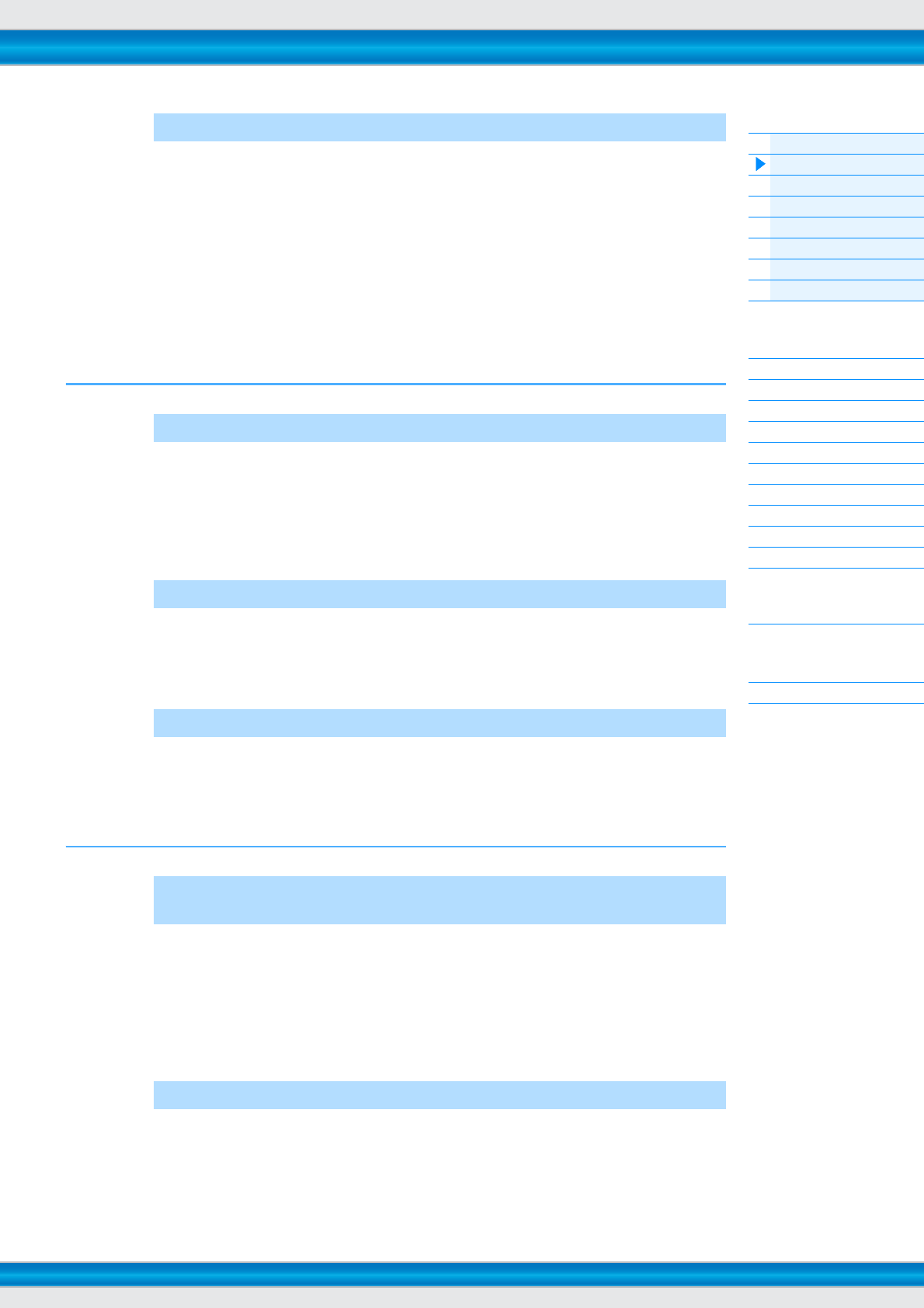
MOXF6/MOXF8 Reference Manual
7
Basic Structure
Functional blocks
Tone Generator block
A/D Input block
Sequencer block
Arpeggio block
Controller block
Effect block
Internal memory
Reference
Voice mode
Performance mode
Song mode
Pattern mode
Mixing mode
Master mode
Remote mode
Utility mode
Quick setup
File mode
Using iOS Applications
Appendix
MIDI
Normal Voices
Preset Banks 1 – 9 1152 Normal Voices (128 Voices for each Bank)
User Banks 1 – 3 384 Voices (128 Voices for each Bank)
GM Bank 128 Voices
Drum Voices
Preset Drum Bank 72 Voices
User Drum Bank 32 Voices
GM Drum Bank 1 Voice
Tone Generator block in the Performance mode
In this mode, the tone generator block receives MIDI data over a single channel. This status is referred
to as a “single timbre” tone generator. This mode lets you play a Performance (in which multiple Voices
or Parts are combined—in a layer, or in other configurations) using the keyboard. Keep in mind that
Song data on an external sequencer consisting of multiple MIDI channels will not play back properly in
this mode. If you are using an external MIDI sequencer or computer to play the instrument, make sure to
use the Song mode or Pattern mode.
A program in which multiple Voices (Parts) are combined in a layer, or in other configurations is referred
to as a “Performance.” Each Performance can contain up to four different Parts (Voices). Each
Performance can be created by editing parameters unique to each Part and parameters common to all
Parts in Performance mode (page 55).
Two User Banks are provided. Each Bank contains 128 Performances, for a total of 256 User
Performances.
Tone Generator block in the Song mode/Pattern mode
In these modes, multiple Parts are provided and different Voices and different melodies or phrases can
be played back for each Part. A MIDI tone generator that simultaneously receives over multiple MIDI
channels and plays multiple instrument Parts is referred to as a “multi-timbral” tone generator. The
settings for the multi-timbral tone generator are collectively referred to as a “Mixing.” You can use the
Mixing when playing the MOXF6/MOXF8 sounds by using an external MIDI sequencer as well as using
the sequencer block of the instrument. In this case, you should use the Mixing of the Song or Pattern
that does not contain any sequence data.
A program in which multiple Voices are assigned to Parts for multi-timbral play in the Song and Pattern
modes is referred to as a “Mixing.” Each Mixing can contain up to 16 parts. Each Mixing can be created
by editing parameters unique to each Part and parameters common to all Parts in the Mixing mode
(page 114).
Also, one Mixing has up to sixteen memory locations for saving Normal Voices. These Voices which are
saved are called Mixing Voices. Normally, the Voice stored in the Voice mode is assigned to each
Memory structure of Voices
Part structure in the Performance mode
Performance
Performance Memory contents
Part structure of the tone generator block in the Song mode/Pattern
mode
About Mixing


















